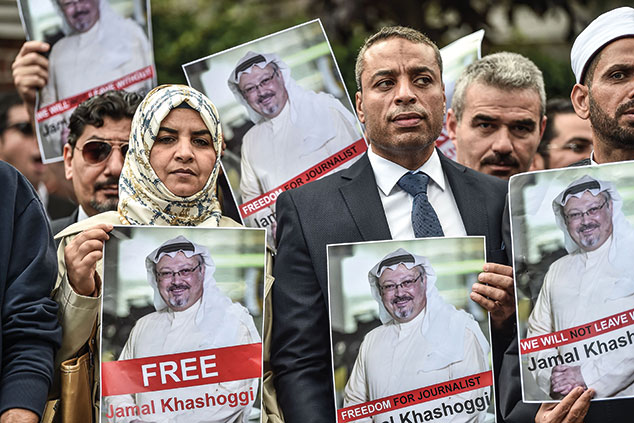
Journalist Jamal Khashoggi “isn’t the first critic of the Saudi government to disappear under mysterious circumstances”, says Amanda Erickson in the Washington Post. “In the past few years, at least three other Saudi nationals – all relatives of the royal family, all outspoken critics of Saudi leadership and all living in Europe – have been kidnapped”. Friends and allies of the vanished “say they were thrown into prison in Saudi Arabia – or worse”.
Still, the case of Khashoggi – a former confidant of senior royals who had been in exile for more than a year – is especially blatant. After entering the Saudi consulate in Istanbul to get the paperwork he needed to marry his Turkish fiancée, it appears he “was murdered on diplomatic premises by killers with diplomatic passports”, says the Times, so that Riyadh could send the message to its citizens that “grassroots opposition is not welcome”.
Reformist hopes in tatters
If this explanation is true, the disappearance of Khashoggi marks the latest in a series of setbacks for those who hoped to see real reform in Saudi Arabia, says the Guardian. When Crown Prince Mohammed bin Salman (MbS) – who is seen as the real power in the country – was promoted to heir apparent last year, he “declared himself a moderniser who wished to return the kingdom to a more moderate Islam”. Since then cinemas have opened and women been allowed to drive.
However, instead of social changes leading to political liberalisation, “intolerance ramped up – with women who had campaigned for the right to drive among those jailed”. And MbS has already shown that he “is no keener on criticism from overseas, lashing out at Canada when it criticised human rights abuses”.
It was always too optimistic to believe that democracy was on the MbS agenda, says Thomas Friedman in the New York Times. However, following the “China model” of economic and social reform coupled with a crackdown on internal dissent, won’t work either.
This is because his social and economic reforms “can’t succeed without significant investments by foreigners and Saudis to create a more vibrant and diverse private sector that can offer decent jobs to all the young Saudis”. Hence while the social changes may be currently popular among young people, “if they can’t find jobs, the religious extremists in Saudi Arabia will find many recruits among them”.
Climate of fear
That’s why the latest events aren’t just a blow for political reformers, but could quickly rebound on the Saudi economy, says Bobby Ghosh on Bloomberg. MbS has “made it clear he remains committed to his Vision 2030 agenda to diversify his oil-dependent economy, even if some specific goals… have had to be delayed”.
However, the latest event “gives pause not just to ordinary Saudis, human-rights organisations and the kingdom’s international allies, but investors, local and foreign”. After all, “business and trade do not thrive in a climate of fear”. Saudi Arabia “already has a problem of capital flight”, so it “can ill afford more skittishness”.